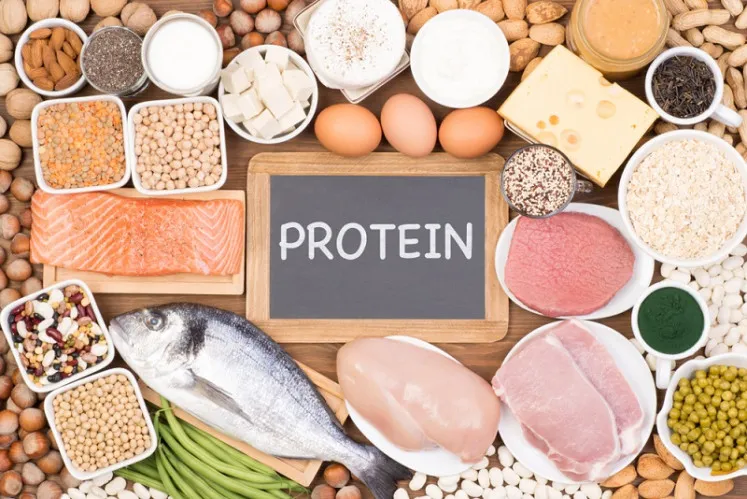Are You Getting Enough Protein?
by Ann Gilligan
It’s a well-known fact runners love carbs – bagels, pasta, donuts and carbo-loading before big races. Indeed carbohydrates are an important part of pre-workout nutrition, and necessary fuel during runs that exceed 60 min. However, runners often do not get enough protein. Protein repairs the muscle fibers and tissues damaged during running. Adequate post-run protein intake can ensure faster recovery, decreased soreness, and help build muscle. If you have recently increased your mileage, added strength training to your workout routine, or noticed you are more tired or sore than normal, you may need to increase your protein intake.
Amount
- The Recommended Dietary Allowance (RDA) of protein for adults is 0.8 grams per kilogram of body weight (0.8 g/kg). However athletes' protein needs are greater than that of non-athletes. The Academy of Nutrition and Dietetics and American College of Sports Medicine recommend 1.2 - 2.0 g/kg for athletes, depending on training level.
Timing
- Protein intake should be spread throughout the day. Avoid heavy protein right before a run (opting for carbohydrates instead) but ensure protein intake within the first 30 minutes after finishing your workout for optimal recovery.
Type
- The following foods are all good sources of dietary protein. It is important to vary the type of protein in your diet, especially through eating whole foods. But if you find it difficult to get the recommended needed amount each day, you can consider a protein supplement such as protein powder or bars. This may also be useful if you experience nausea after hard runs and find it difficult to eat. Whey, soy, casein, and pea/mixed plant proteins are all good options.
- Poultry, beef, pork, fish and seafood
- Nuts and seeds
- Nut butters and nut milk
- Eggs
- Beans and lentils
- Yogurt (especially Greek yogurt), milk, cheese, cottage cheese
- Tofu and tempah
- Whole grain bread and oatmeal
An example of a typical day
- A 175 pound male (80 kg) is training for a marathon. He would need at least 1.2 g/kg body weight due to his increased needs from the endurance training. That’s a total of 96 g protein per day.
- Breakfast: 2 scrambled eggs, 2 slices bacon, 1 slice whole wheat bread – 24 g
- Lunch: salad with 1 cup black beans and ¼ cup crumbled feta cheese – 17 g
- Post Run: berry smoothie made with 1 scoop whey protein and 8 oz low-fat milk – 34 g
- Dinner: 3 oz salmon – 23 g
- Total: 98 g protein. *note this is not a complete meal plan but rather just shows the sources of protein for the day
Ann Gilligan
Hi all! I joined RRRC as a Running Consultant in November 2019 after moving to Las Vegas. I previously worked in Washington, DC for six years as a government contractor but have since changed careers. I am currently pursuing a M.S. in Nutrition Sciences - Coordinated Program in Dietetics to become a Registered Dietitian. I competed in high school track and cross country and ran with a club team in college. I also have experience with weightlifting as I been doing Crossfit in addition to running for six years. I am passionate about sports nutrition and fueling our bodies properly to prevent injury and maximize performance on the road, trails, or in the gym!
